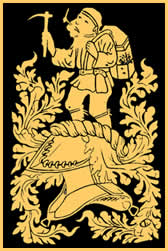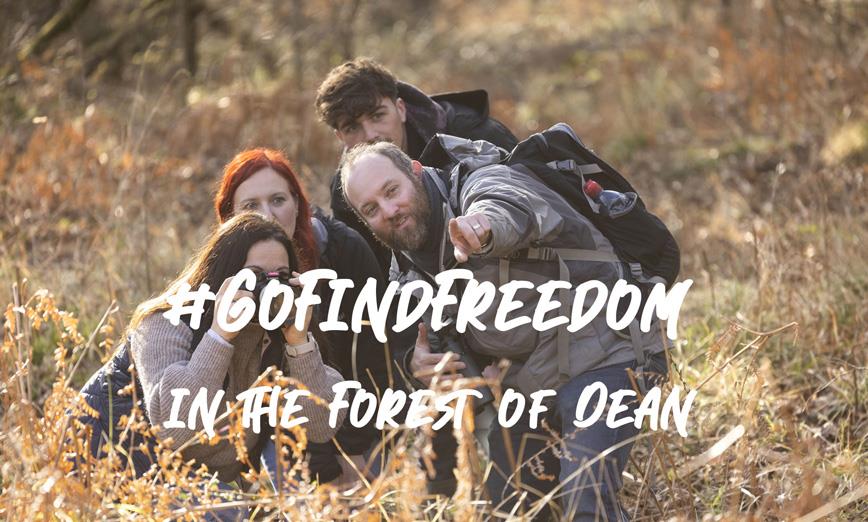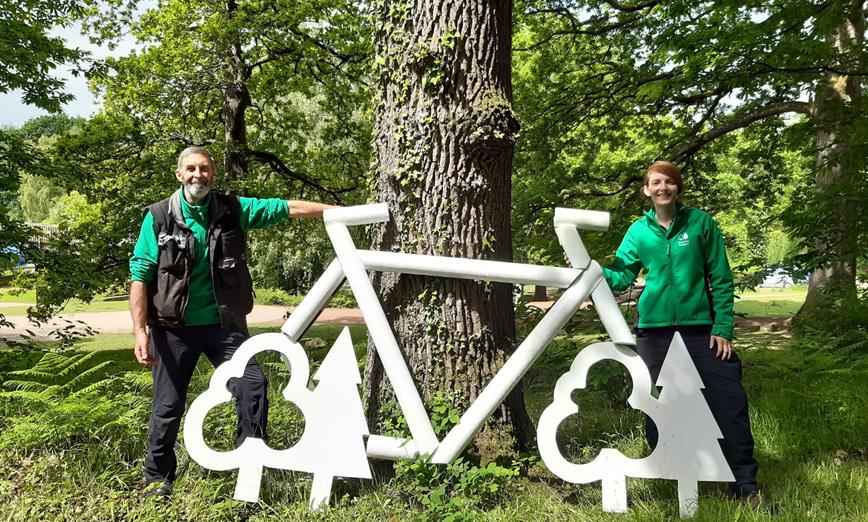- Stay
- What's On
- Things To Do
- Food & Drink
- Explore
- Inspiration
- Offers
- Weddings
- Blog
My Planner
- Stay
- What's On
- Things To Do
- Food & Drink
- Explore
- Inspiration
- Offers
- Weddings
- Blog
You are here: Explore > History & Heritage > Freemining
Freeminer is an ancient title given to coal or iron miners in the Forest of Dean. The freemining tradition is unique to the Forest.
The Origins
For hundreds of years, mining of the Forest of Dean coalfield and iron reserves has been regulated through a system of Freemining, with the Freeminer's Mine Law Court sitting at the Speech House from 1682. The earliest known existing copy of Dean Miners’ Laws and Privileges, known locally as the Book of Dennis, dates from 1610 but the copy itself contains references to much earlier origins. There are many references to medieval Freeminers; they were instrumental in recapturing Berwick upon Tweed several times (1296, 1305, 1315) as it passed between Scottish and English hands. Legend tells us that it was for their indispensable services, particularly during his Scottish campaigns, that Edward I granted the Dean miners a Royal Charter in recognition of their services and that the Freemining rights were confirmed as being 'customes and franchises' that had existed since 'tyme out of mynde'. The document contains 41 laws and privileges and outlines rights of access and the method for defining a claim, known as a gale. The exact date by which these privileges were operating is not known but it is recorded in 1244 that Dean freeminers already had the exclusive right to mine in the Forest of Dean.
How to Become a Freeminer
In order to become registered as a Freeminer a person must:
• Be born in and live within the Hundred of St Briavels
• Be over the age of 21 years
• Have worked for a year and a day in a mine within the Hundred
In addition the laws state that Freeminers must be male, but since 2010 "male" has been interpreted to mean '"male and female" by the Gaveller of the Forest of Dean (a Crown appointment currently vested in the Forestry Commissioners as a body) when they made a decision to accept an application from Mrs Elaine Morman, who became the first ever female Freeminer to be registered.
Although its origins are obscure, a Hundred was an Anglo Saxon subdivision of a County and held its own court; it has been suggested that it was an area where the medieval king could demand the services of a hundred fighting men - in the case of the St Briavels' Hundred, this was often the services of skilled miners. Today the area covered by the Hundred of St Briavels consists of the statutory Forest of Dean and each parish touching the Forest boundary.
Freemining Today
During the nationalisation of the coal industry, the Forest of Dean was exempt due to its unique form of ownership and history and the Coal Industry Nationalisation Act 1946 gave specific exemption for gales to allow this unique local privilege to continue intact.
There are thought to be around 150 Freeminers living today. There are a handful of small collieries still operating including Hopewell which can be visited, one iron mine (Clearwell Caves) and eight small stone quarries within the statutory Forest. Freemining has a long and proud history and most Forest families can tell a mining tale or two and will proudly claim a Freemining ancestor or relative. Freemining continues to be an important part of what makes the Forest of Dean special.
Foresters’ Forest, a National Lottery Heritage funded local programme, is ensuring with its Future for Freemining project that this unique tradition will continue in the Forest for future generations.
How to Visit a Freemine
Hopewell Colliery is a working mine and museum that is open for tours. Rich Daniels MBE is a Freeminer and tour guide who managed the colliery as a tourist attraction and museum.
You can also see an example of a Freemine at the Dean Heritage Centre.
Find Out More
There are various videos about Freemining including 'In the Shadow of the Hills' made in 1986 which can be found here.
Find Out More About Our History
Find Your Freedom
- We have a very rich heritage here in the Forest of Dean and Wye Valley of which we are rightly proud. A former royal hunting forest, the Dean has a long past as a source of timber for ships and building, coal, charcoal, iron ore, ochre and limestone.
- Mining definitely left its mark on the Forest of Dean. You can learn about the history of mining at Hopewell Colliery and Clearwell Caves and there are several sculptures and memorials which are important reminders of a legacy which shaped the landscape and the people in it.
- Explore the Forest of Dean's Hidden Heritage in a series of apps, an exciting new way to explore the Forest of Dean using modern technology to bring historic areas to life. Using them is like taking a step back in time, showing you the Forest’s industrial past in a series of magical Then and Now images.
- This working colliery is an unmissable experience set in the midst of the glorious Forest of Dean. Mined since the 1800s, the colliery gives you a unique opportunity to learn about the ancient and fascinating tradition of freemining in the safe hands of an expert freeminer. Sink below the Forest floor for a unique adventure and take the 45-minute tour through the dark tunnels before emerging back into serene woodland. Follow it with a hot drink and bite to eat at the friendly Hopewell Cafe.
- Discover the wonder of under! The ancient mines at Clearwell Caves are a secret world hidden beneath the trees; they are an exciting underground experience for the whole family, an unfathomable natural cave system that has been mined for more than 4,500 years. Cafe, shop, picnic area, free parking. Deep level adventure caving available.
- We are the Museum of the Forest: a stunning building and location with inside and outside attractions. Learn about the history of the Forest from the Ice Age to the present day, visit our museum and gallery, explore the Gruffalo woodland trail, visit a charcoal burner's camp, see chainsaw carving, our mill pond and pretty stream, kids will enjoy our woodland playground plus there is an excellent cafe and gift shop.
©Visit Dean Wye 2025. All Rights Reserved.
*Visit Dean Wye is the trading name of Forest of Dean & Wye Valley Tourism Limited.









